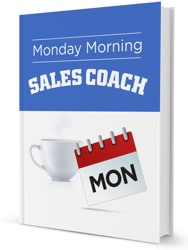Questions – The Salesperson’s Best Friend
The first step in becoming a good communicator is being able to control the direction of the sales interview with questions. In selling, the focus needs to be on the prospect, so getting them to talk is important. When they don’t feel like the information they give will be used against them, people are comfortable answering your questions. The person who is asking questions, not the one talking, is in control. There are four basic types of questions that salespeople can use to get information.
Closed Questions: These solicit only a “yes” or “no” answer. These questions have a place in your repertoire, but the amount of information you might get will be limited, as they don’t encourage the prospect to provide much information beyond the simple “yes” or “no” answer. Examples are:
- “Do you currently have a retirement program for your employees?” (“Yes.”)
- “Are you familiar with my company?” (“No.”)
Open Questions: These are questions that must be answered with more than a simple “yes” or “no.” The six principal open-ended interrogatives are who, when, where, what, why, and how. These are great questions that encourage the prospect to speak in greater detail, which helps you in the investigation step. Examples are:
- “Who will be part of the decision making process on this initiative?”
- “When do you need to get a solution implemented?”
- “Where are the system users located?”
- “What are the major challenges you’re facing in growing your sales?”
- “Why did you decide to invest in this technology?”
- “How will you evaluate the options available to you?”
Encouraging Questions: Getting the prospect to provide answers to your open questions is one thing, getting him to elaborate and tell you more is still another. Here are some ways to do that:
- “Is there anything else I need to know about that?”
- “Interesting. Keep going.”
- “Can you be more specific?”
- “What does that mean?”
Leading Questions (not recommended): Leading questions are often manipulative as they attempt to “set-up” the prospect by soliciting only answers that are favorable to the salesperson’s cause. These types of questions have no place in a selling environment that relies on trust between buyer and seller. Examples are:
- “You’d be interested in saving time and money, wouldn’t you?” (Duh.)
- “You wouldn’t want to miss out on a good opportunity, would you?” (Give me a break.)
Let people talk. They won’t argue with their own data.
Self-Study Assignment: Make a commitment to use more open and encouraging questions on your sales calls, and watch how much additional information you will receive.


